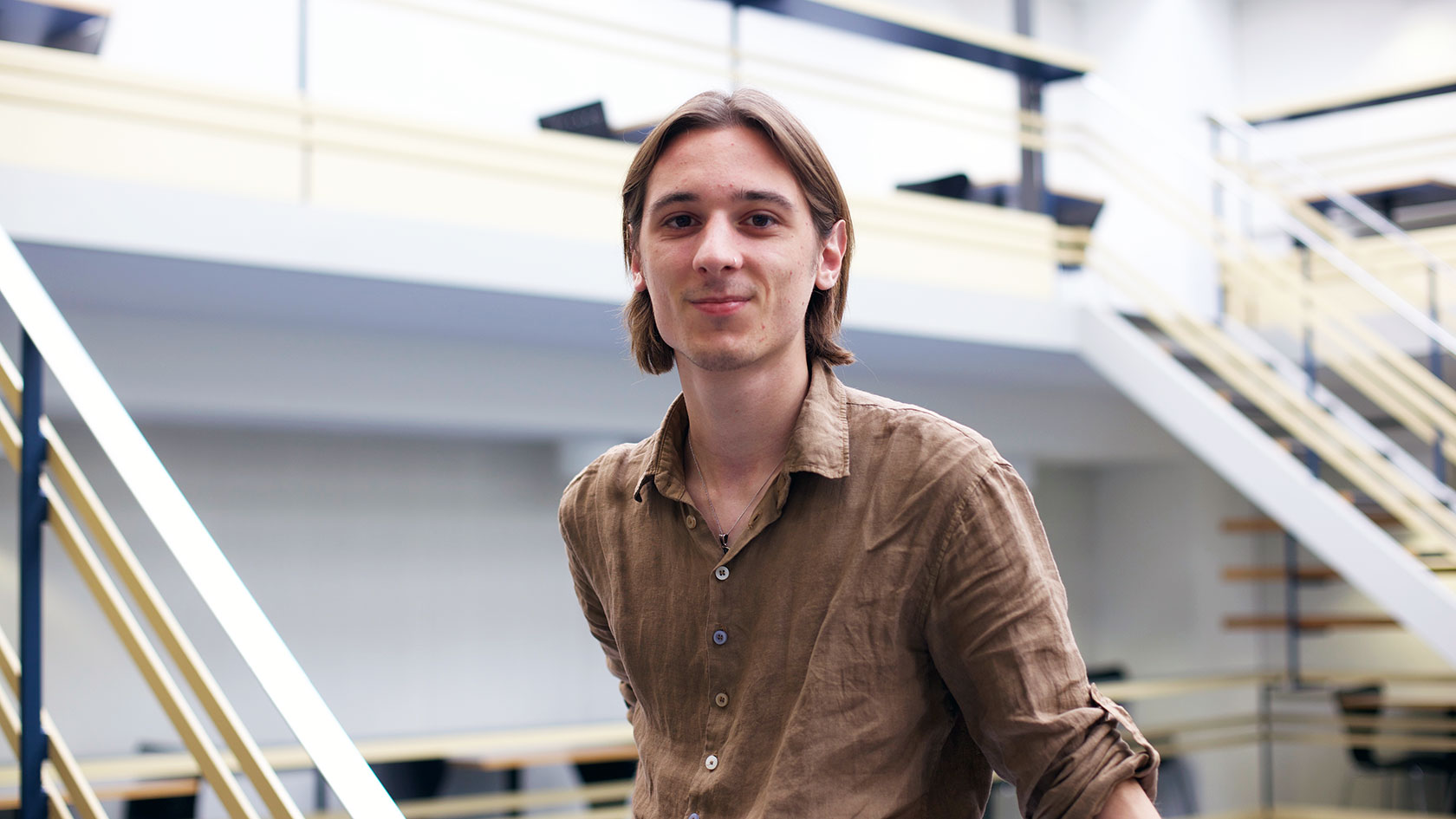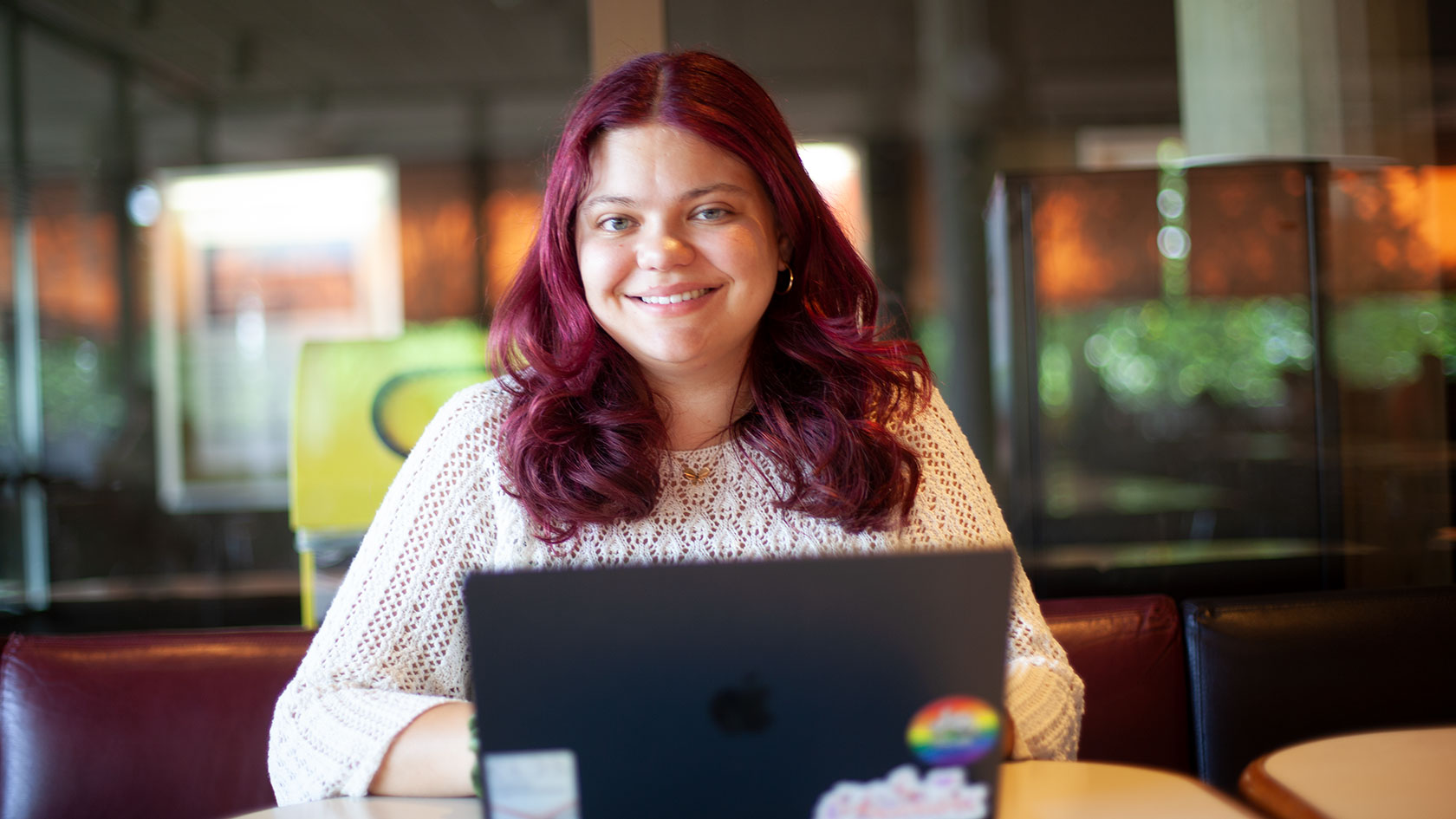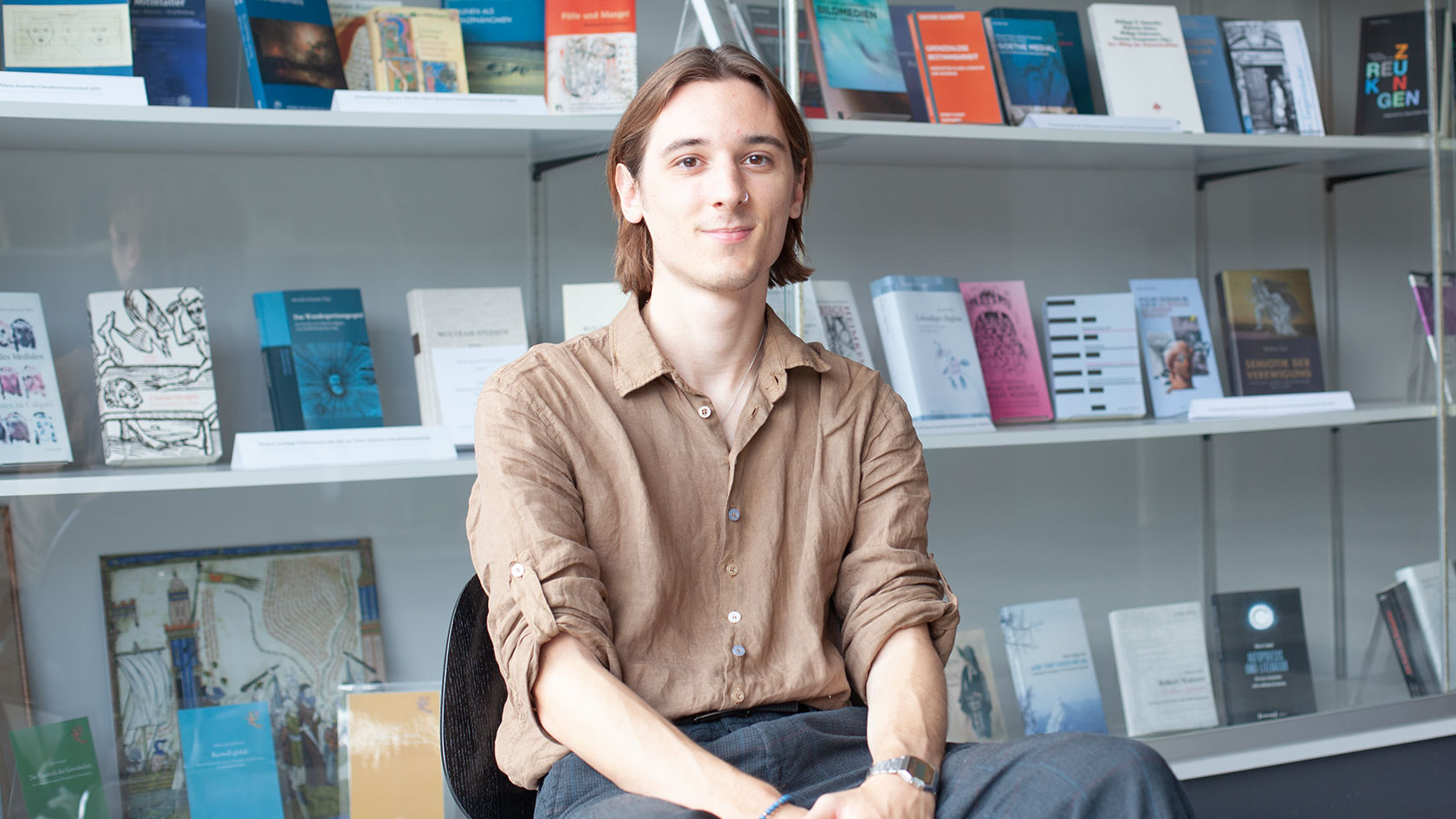Unlocking Potential
Next week, the autumn semester begins at the University of Zurich; for many young adults, this marks the start of their studies and thus a whole new phase in their lives.
It is often said that there is magic in every beginning, but starting a new chapter also brings many questions. When it comes to starting university, these questions include: What can I do to make sure I succeed in my studies? How should I get organized? How do I cope with the huge waves of new material? Where can I go to study, and which skills are crucial?
We met with Fabian Nägele and Selina Scherrer to discuss the many different paths that lead to success at university. Along with eight other UZH students (see box), they were recently awarded an Excellence Scholarship for their Master’s studies. Find out about their experience as students at UZH below.
Pursuing your interests
“I’m interested in a variety of topics. But the way law studies are structured leaves little room for taking courses in subjects at faculties other than your own. After I had completed two years of the standard period of study, I realized that I wanted to spend a little more time pursuing my other interests. That’s why I took an introductory course on Swiss politics in political science, two basic math courses in business and economics, and an introduction to the history of philosophy.
I’m intrigued whenever law is combined with other disciplines, such as history of law, philosophy of law, or sociology of law. And this is obvious from the subjects I’ve chosen for my Master’s. A friend of mine recently joked that I was only doing the side quests. But I get a lot out of the courses I’ve chosen and always discover links between them. It’s also cool that I can talk about and understand the subjects that my friends are studying.
Last October, I started working as a student assistant at the chair of Tilmann Altwicker, who heads the Center for Legal Data Science. This has enabled me to combine my passion for mathematics with law. I wasn’t previously aware that there were people who really did empirical legal studies – but I’m glad that I came across this type of research. I had no idea whatsoever what scholars in this field actually do. In addition, my job has also given me an opportunity to work directly with a professor, which isn’t often the case for law students.
I’m also applying the methods of empirical legal studies in my Master’s thesis, in which I’m investigating the lay judges system. The first five ideas I came up with for my thesis had to be scrapped. I think often you just have to take the first step and see if the topic you’ve come up with works. You need to be a little resistant to frustration and accept that it’s a process that takes time. It won’t help if you compare yourself to other students, and this goes for studying in general, because everyone’s situation is different.
Although my subject is often a bit school-like, I can’t tell you what a normal day at university looks like for me, and every day is a little different. It’s not that I expect to have to get up every morning at 8:00 in the morning to study. That’s not how I approach things. Rather, I tend to follow my whims, to put it in slightly negative terms. I feel like I can ultimately achieve more if I pay attention to my rhythm and what’s good for me. There are days when I can easily work on my studies for 12 hours, and others where I only manage three. Of course there are periods in which I have to focus on exams, but during the semester I try to manage my time flexibly.
When I revise, I try to understand the bigger picture. Very often you’re dealing with details, and you can quickly get lost. Two weeks after the semester begins, I try to find a suitable learning system for each of my subjects. Unfortunately, however, you can’t always avoid having to learn things by heart. I use flash cards for this. Breaking things down so that they fit onto flash cards means you’re already understanding and processing the information. The cards also allow me to study wherever I want to – at the lake, for example – and I can avoid the library, where it’s too quiet for me.
With my double degree Master’s program I’ll probably spend a year studying globalization and law at Maastricht University. Thanks to the Excellence Scholarship, I can look to the future without worrying about whether I’ll be able to work and earn money when I’m abroad. That’s very reassuring.
I have no plans for when I complete my Master’s program, and I don’t have a 10-year plan. I’ll probably try out various things and see what fits best.”
Thinking independently and critically
“I’m very self-disciplined. I don’t mind organizing my everyday life at university; in fact, I enjoy it. But it wasn’t until I started university that I learned how to acquire knowledge in a way that sticks.
I prefer to study alone. I’m an auditory learner and often read what I’m learning out loud to myself. If I’m learning for an oral exam, I’ll ask myself questions and then answer them. Moving around while doing so also helps a great deal. Something I can’t do is to sit around in the same place reading and marking sentences with a highlighter.
Due to the pandemic, the first year of my studies was exclusively online. This has made me appreciate all the more that we can now attend courses on site again. If I’m going to study, I also want to experience the university feeling.
I’m not at university to prepare for any specific job, but more as an end in itself. I’m very passionate about my two subjects, German language and literature and philosophy. German is beautiful, and I’ve always been interested in languages in general. Even as a child, I was fascinated with how language varies from one region to the next and how people could still understand each other.
I’m particularly interested in the philosophy of language. How does language shape our thinking? Can language represent reality? Can we find truth through language? My Bachelor’s thesis also focused on language. I analyzed the works of my favorite authors: Max Frisch, Ingeborg Bachmann and Paul Celan.
Before I started writing my thesis, I thoroughly planned what I wanted to do. I thought about specific questions and tried to narrow them down as much as possible so that I wouldn’t get lost, and then looked to see if I could find enough literature to answer them. I think it’s important that you’re genuinely interested in your research question, and that you’re eager to find answers.
When it came to writing, I drew up a detailed plan. This way, I knew how many characters I would have to write by when so that I’d have enough time to read through my thesis at the end. I was lucky to be able to give my thesis to my thesis supervisor, Professor Thomas Strässle, and he read through it several times.
The most valuable thing I have learned in my studies is how to think outside the box. Acquiring the ability to think for yourself is crucial, and it ultimately benefits society. You learn how to challenge authority, identify problems and find solutions, for example when it comes to climate policies and the protection of the environment – areas that I am personally very interest in. The language awareness I’ve acquired during my studies will surely also be useful for my political activities. As vice president of the youth parliament in Liechtenstein, I do a lot of external communications.
If I’m completely honest, I have pretty high expectations of myself. A year ago, I heard that the University of Zurich was awarding excellence scholarships. Since my grades were already good, I worked all the harder to apply and put myself under great pressure. When I heard that I had won a scholarship, it was a weight off my shoulders. The scholarship means I don’t have to worry about my finances. As my sister is starting her studies this fall, my parents wouldn’t have been able to support me as much as before.
For my Master’s, I’ve chosen philosophy as my major. I’m thinking about writing my Master’s thesis in philosophy and then going on to do a PhD. If it works out, I’d love to pursue a career in academia. If it doesn’t, I can also see myself as a teacher – I’ll definitely do the teaching diploma.”


